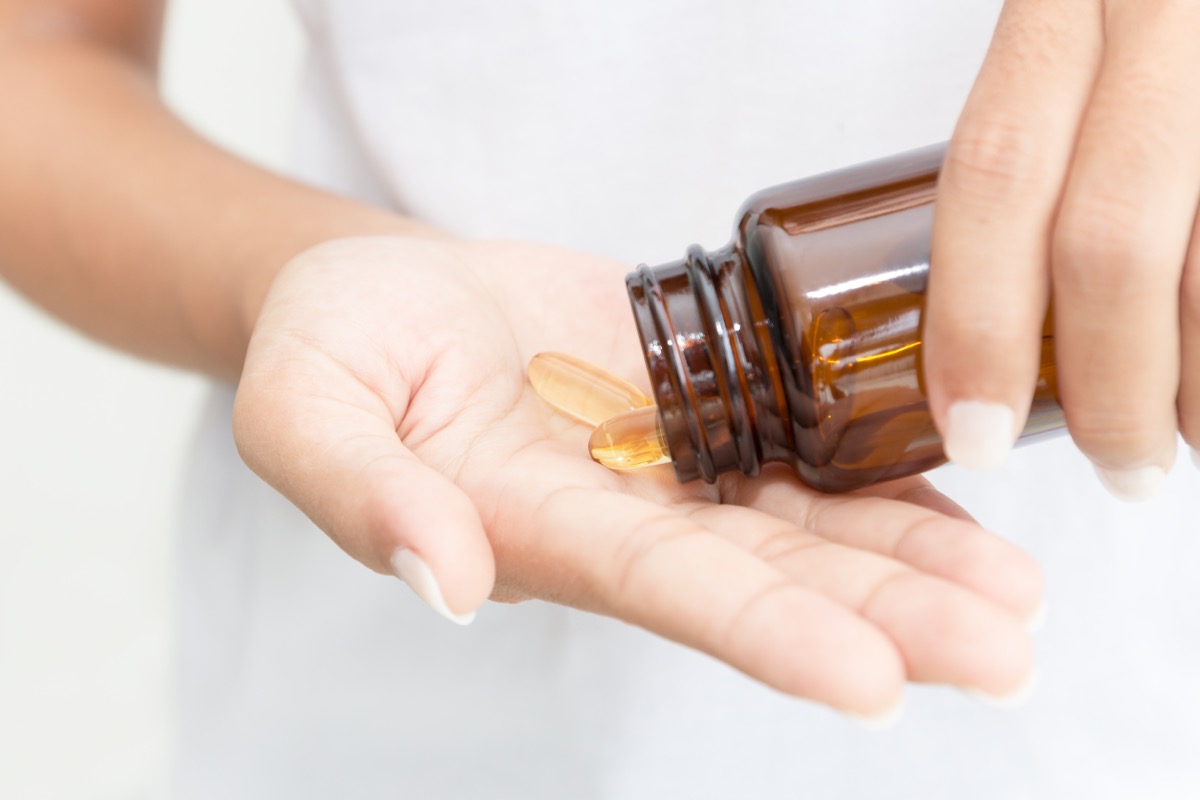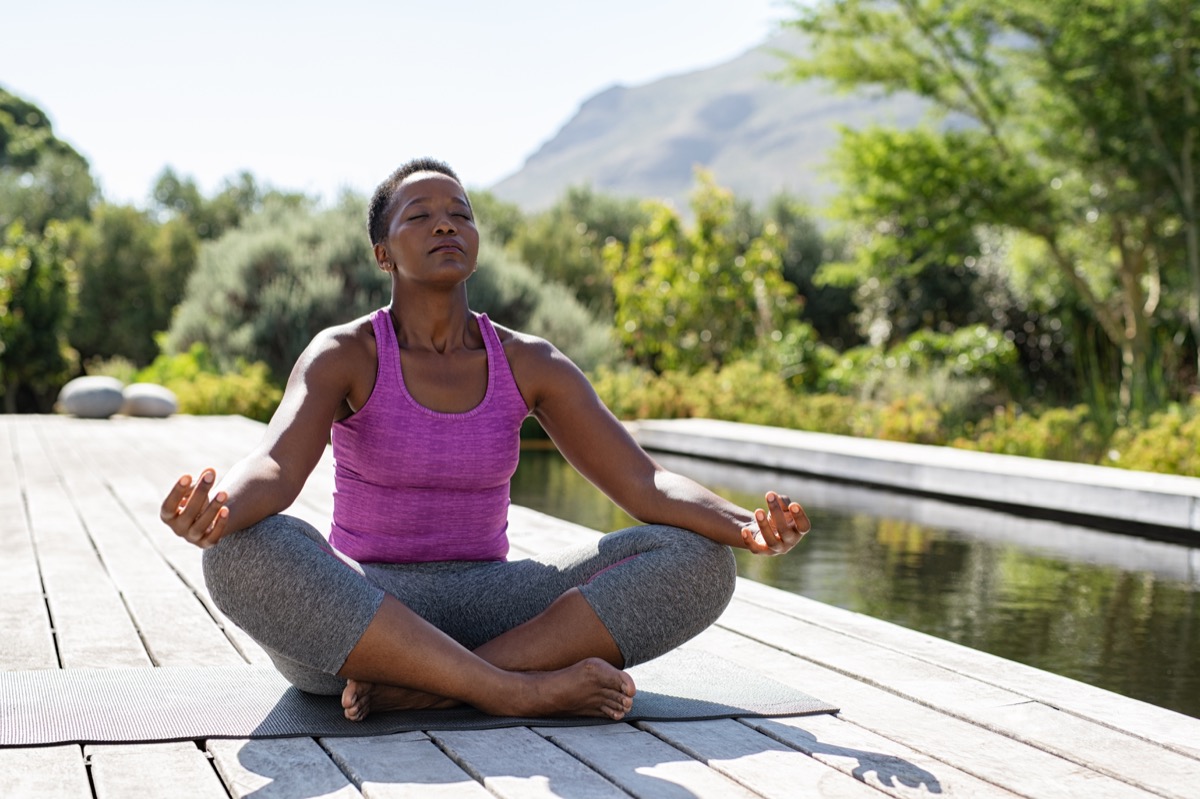Without a doubt, we are all under a ton of stress, and it’s fair to say that has been more of a problem than ever in the last year as worries about health, finances, and the wellbeing of loved ones has been at an all-time high.
Stress may feel pretty terrible, but it’s also actually rather dangerous for our bodies, too. When we are under stress, our bodies will release a hormone called cortisol, which causes an inflammatory response in our body. “When the stress response becomes chronic, we develop chronic inflammation, and often, more susceptibility to the above mentioned pro-inflammatory conditions making the situation worse,” said Dr. Tricia Pingel, NMD, a naturopathic physician and expert on stress and adrenal fatigue.
When people stress, hormones in their body will raise inflammation levels, which, over time, can cause all sorts of damage to your body. The good news is, as damaging as this physical reaction to stress can be, there are certain ways to combat this and be healthier overall.
Stress-related inflammation is one of the leading causes of chronic disease. “When the body is put into stress, the sympathetic nervous system is activated,” said Serena Poon, a celebrity chef and nutritionist. “Also commonly called the ‘fight or flight’ response, activation of the sympathetic nervous system speeds heart rate and pulses the hormone cortisol through your body,” said Poon.
This activation also impacts bodily functions such as hormone production, muscle repair, digestion and fertility. “This response is necessary when in danger, and a small amount of stress can support us in realizing success, but if constantly ignited it can lead to inflammation and therefore more serious conditions,” said Poon. Inflammation is linked to almost all chronic diseases.
According to Poon, in order to balance out the deleterious effects of stress on the body, it is important to activate the parasympathetic nervous system, which is the other side of the coin. “Also called the rest and digest function, activation of the parasympathetic nervous system allows your body to release tension, digest and heal,” said Poon. Read on to find out more, and to ensure your health and the health of others, don’t miss these Sure Signs You Have “Long” COVID and May Not Even Know It.
Signs to Watch Out For

“Symptoms such as body pain, fatigue, insomnia, depression, gastrointestinal complaints, neurological conditions and poor immune function become more pronounced and ironically, all of these symptoms have been shown to further the inflammatory response overall,” said Dr. Pingel. To simply treat the disease process alone is ignoring the common thread – the impact of stress on our bodies’ inflammatory response. One leads to the other, which means, to help with one, we’re going to have to start with the root cause of the inflammation. The stress that caused it.
Diet Changes

Eating healthy is important for our immune system, and we need our immune system to be strong to combat stress. An anti-inflammatory, plant focused can help this in many ways. First: “It provides the body with the nutrients needed to combat stress and inflammation; in particularly antioxidants, minerals, omega-3 fatty acids, and fiber,” said Dr. Pingel. Many plant-based foods have been associated with lower risk of inflammatory conditions. Some of these include cruciferous vegetables (stuff like brussel sprouts, cauliflower, broccoli, kale), blueberries, walnuts, sesame seeds (tahini), and cherries.
Consider Supplements

There are various supplements that can fight inflammation and counteract the impact stress on the body. For example, fish oil has been shown to lower inflammatory markers, such as CRP, TNF-alpha and IL-6, according to Dr. Pingel. Another great bet is Turmeric or Curcumin. In fact, there are over 6,500 publications that reference the health benefits of curcumin. “The research suggests that curcumin acts as an anti-inflammatory agent and contains antioxidant effects. These antioxidant effects help ward off the impact of stress on the body,” said Dr. Pingel.
Exercise

Exercise is a great way to feel better, but not just physically. It can be a good way to release stress and tension, achieve mental clarity, and keep the rest of our body feeling healthier. “Exercising can help by reducing stress hormones such as cortisol and adrenaline, as well as raising endorphins (your body’s natural mood elevators),” said Paul Rosenberg, owner of REAL RESULTS Fitness in Las Vegas and author of the book REAL NUTRITION.
Mental alertness and a zest for living is also promoted through cardiovascular and strength exercise. “The utilization of oxygen as a fuel source, the lowering of stress hormones, and a general state of wellbeing can all be attributed to a regular exercise program,” said Jamie Costello, MSC, who is VP, Sales & Fitness at Pritikin Longevity.
Staying Hydrated

It’s so important to get enough water over the course of a day. In fact, according to the Mayo Clinic, that should be as much as 15.5 cups a day for men and 11.5 cups for women. But drinking water is about more than staying hydrated and having healthy skin and a balanced diet. “Drinking adequate amounts of water can help reduce stress levels by lowering stress hormones and making you healthier overall,” said Rosenberg.
Get More Sleep

Sleep is essential to feeling relaxed and refreshed and starting our day strong. But, unfortunately, stress can have a negative impact on our sleep — which then can be detrimental to our bodies. It’s a vicious, dangerous cycle. “When you get a regular routine of 7-9 hours of sleep a night, you allow your body to recover and restore. It improves brain function and helps lower stress hormones,” said Rosenberg.
Nurture the Mind

It’s easy to think the answer exists in what we put in our body to keep it healthy and stress free. But the actuality is what we do with our body and mind can matter just as much. “Journaling, speaking with someone you trust, and/or meditating are all great tools you can use to help lower stress in your body and make yourself a healthier person,” said Rosenberg.
Don’t Forget to Breathe!

Deep breathing exercises can positively reduce stress levels. Best of all, it’s a free remedy. “People tend to underestimate the power of deep breathing,” said Dr. Sanda Moldovan, a periodontist, nutritionist and oral health and wellness expert. “Most people are shallow breathers. They tend to breathe from the chest and hold in their stomach and that actually intensifies anxiety levels,” said Dr. Moldovan.
The breath should go all the way to the stomach; you should see the rise and fall of your belly button with every inhale and exhale. “Rest your hand on your stomach. You consciously observe it. Breathing in and out. You allow the distance as you inhale or exhale,” said Dr. Moldovan.
Remember to inhale through the nose, not through the mouth. “Mouth breathing long term can create numerous health problems, including dry mouth and red and swollen gums in the front of the mouth,” said Dr. Moldovan. The nostrils filter air, acting as a purifier before air reaches the lungs. When starting out, try to do a minimum of five minutes. “In my book, Heal Up!, I write about the importance of increasing oxygen levels in our bodies. Breath work increases the level of endorphins,” said Dr. Moldovan.
Here is a great exercise Dr. Moldovan recommends for alleviating stress through nostril breathing: You begin by pressing your forefinger on your right nostril and inhale to the count of four. Then you exhale on the same nostril. Do this again with the left nostril—inhale to four counts, and exhale to the count of four. “This simple exercise can make you feel great. As you practice deep breathing you will feel new levels of energy and a sense of calmness. Oxygen heals. I’ve experienced the healing power myself,” said Dr. Moldovan. And to get through life at your healthiest, don’t miss these 13 Everyday Habits That Are Secretly Killing You.
Article here: https://www.eatthis.com/news-inflammation-cause-science/?fbclid=IwAR3_466UKRlz39PgaAeY-_MF1XnaeYRQ-G2XcbE-N7Dq1tci0GDmSRvtTts


